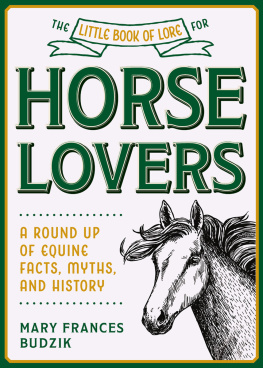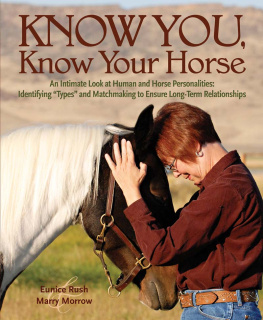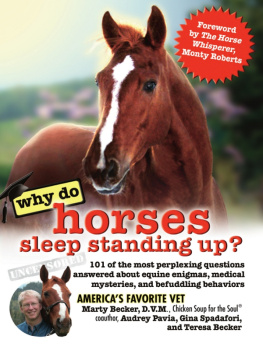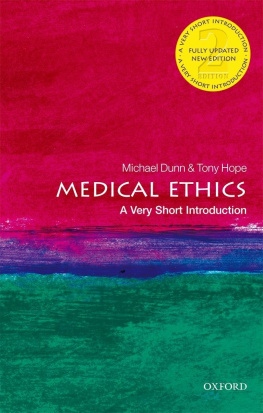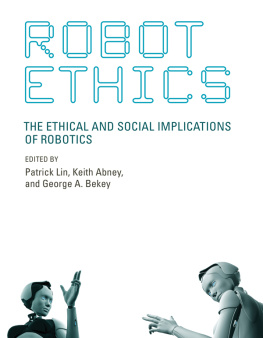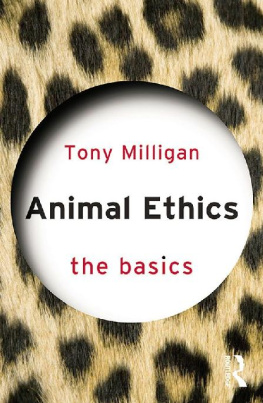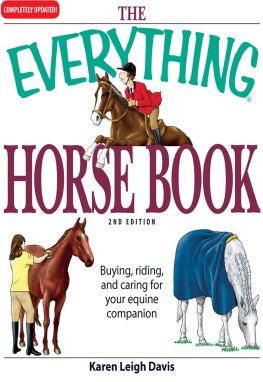
Equine Cultures in Transition
Societal views on animals are rapidly changing and have become more diversified: can we use them for our own pleasure, and how should we understand animal agency? These questions, asked both in theoretical discourses and different practices, are also relevant for our understanding of horses and the humanhorse relation.
Equine Cultures in Transition stands as the first volume to bring together ethical questions of the new field of humanhorse studies. For instance: what sort of ethics should be developed in relation to the horse today: an egalitarian ethics or an ethics that builds upon asymmetrical relations? How can we understand the horse as a social actor and as someone who, just like the human being, becomes through interspecies relations? Through which methods can we give the horse a stronger voice and better understand its becoming? These questions are not addressed from a medical or ethological perspective focused on natural behaviour, but rather from human acknowledgement of the horse as a sensing, feeling, acting, and relational being; and as a part of interspecies societies and relations.
Providing an introductory yet theoretically advanced and broad view of the field of post humanism and human animal studies, Equine Cultures in Transition will appeal to students and researchers interested in fields such as humananimal studies, political sociology, animals and ethics, animal behaviour, anthropology, and sociology of culture. It may also appeal to riders and other practitioners within different horse traditions.
Jonna Bornemark is Associate Professor of Philosophy at the Centre for Studies in Practical Knowledge, Sdertrn University, Sweden.
Petra Andersson is a researcher in Practical Philosophy at University of Gothenburg, Sweden.
Ulla Ekstrm von Essen is Associate Professor in History of Ideas at the Centre for Studies in Practical Knowledge at Sdertrn University, Sweden.
Routledge Advances in Sociology
Christianity and Sociological Theory
Reclaiming the Promise
Joseph A. Scimecca
Ageing, Diversity and Equality
Edited by Sue Westwood
Cinematic Tourist Mobilities and the Plight of Development
On Atmospheres, Affects and Environments
Rodanthi Tzanelli
Bicycle Utopias
Imagining Fast and Slow Cycling Futures
Cosmin Popan
Islamophobia in Muslim Majority Societies
Edited by Enes Bayrakli and Farid Hafez
Equine Cultures in Transition
Ethical Questions
Edited by Jonna Bornemark, Petra Andersson, and Ulla Ekstrm von Essen
Loneliness
A Social Problem
Keming Yang
Queer Community
Identities, Intimacies and Ideology
Neal Carnes
For more information about this series, please visit: www.routledge.com/Routledge-Advances-in-Sociology/book-series/SE0511
Equine Cultures in Transition
Ethical Questions
Edited by Jonna Bornemark, Petra Andersson, and Ulla Ekstrm von Essen
First published 2019
by Routledge
2 Park Square, Milton Park, Abingdon, Oxon OX14 4RN
and by Routledge
52 Vanderbilt Avenue, New York, NY 10017
Routledge is an imprint of the Taylor & Francis Group, an informa business
2019 selection and editorial matter, Jonna Bornemark, Petra Andersson, Ulla Ekstrm von Essen; individual chapters, the contributors
The right of Jonna Bornemark, Petra Andersson, Ulla Ekstrm von Essen to be identified as the authors of the editorial matter, and of the authors for their individual chapters, has been asserted in accordance with sections 77 and 78 of the Copyright, Designs and Patents Act 1988.
All rights reserved. No part of this book may be reprinted or reproduced or utilised in any form or by any electronic, mechanical, or other means, now known or hereafter invented, including photocopying and recording, or in any information storage or retrieval system, without permission in writing from the publishers.
Trademark notice: Product or corporate names may be trademarks or registered trademarks, and are used only for identification and explanation without intent to infringe.
British Library Cataloguing-in-Publication Data
A catalogue record for this book is available from the British Library
Library of Congress Cataloging-in-Publication Data
A catalog record has been requested for this book
ISBN: 978-1-138-54959-3 (hbk)
ISBN: 978-1-351-00247-9 (ebk)
Typeset in Times New Roman
by Wearset Ltd, Boldon, Tyne and Wear
Contents
She walks into the stable to take care of her horse Freya, as she has done many times before. She knows how her hair feels under her fingers, knows where to feel for small wounds, and knows which brush to use when the hair is muddy. But today, when her fingers picks up a piece of hay from Freyas mane, she suddenly catches her gaze and her movements becomes more hesitant: Who are you? she mumbles to herself. In the midst of everything that she knows so well, a new insecurity appears: Do I really know you? Do you like to go out riding? What do you want?
During the last decades the subjectivity of horses, and animals at large, have gained more and more attention. An increasing number of people in late modernity ask themselves, in theory and in practice, if they belong to a tradition that has neglected the horse as a subject with its own will, feelings, and experiences. Such issues also raise many different ethical questions: do we treat the horse as a living creature, as a subject with a perspective of his/her own? What does such an approach make visible in existing practices? Can we consider the practices that we are in the midst of as ethically sound?
These insights produce a displacement in concepts such as horse welfare. We can see a movement from a medical and technocratic concept of freedom from disease and injury, to a concept where welfare means lack of pain, suffering and other negative affective states, via an ethological concept with an emphasis on space for natural behaviour, to a welfare concept that pays respect to the horse as an individual with a perspective and will of its own. (See Fraser, 2008, for a discussion on the tension between the first three conceptions of welfare.)
Theoretical background
These new perspectives do not arise from a void. Western philosophy has for a long time been a story where the human being has been separated from other animals and put at the centre of the world. In the beginning of modernity Ren Descartes thought of animals as pure res extensa, i.e. extended matter, whereas human beings also had a capacity for thinking and experiencing, res cogitans. Animals could therefore be treated as mechanical devices, whereas human beings needed to be respected for their subjectivity. This also meant that Descartes thought that animals are not capable of, for example, feeling pain.
The anthropocentric worldview has gradually been questioned, and one important milestone is Peter Singers Animal Liberation from 1975. As a utilitarian moral philosopher, Singers key premise for settling ethical questions is to reduce suffering, no matter where it turns up. And he argued that animals are capable of feeling both pain and pleasure, just like human beings. Animals should thus not be excluded in the task of reducing suffering, and taking only human suffering into account is a speciesism, which should be compared to racism or misogyny.


